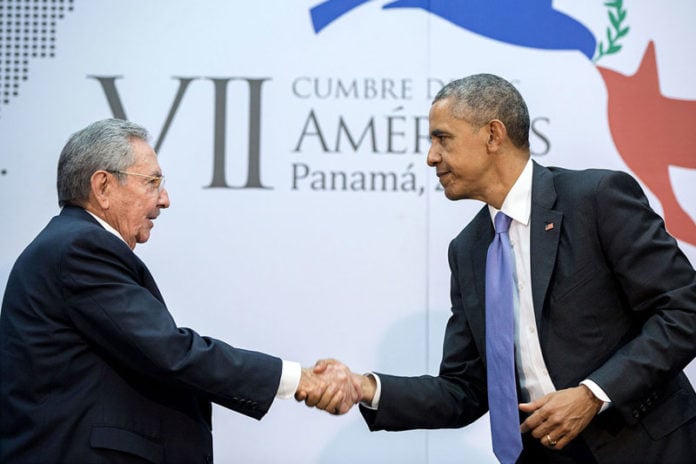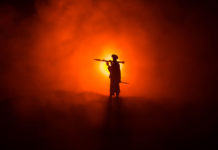In a quest to normalize relations Obama lifted sanctions against Cuba and celebrated being the first sitting U.S. president to visit the Communist island since 1928, but the Caribbean nation still appears on a crucial government terrorist list along with the world’s most violent Islamic groups. This contradiction indicates that, when it comes to our bloated government, the left hand doesn’t know what the right hand is doing.
Here’s some of the history. Before Obama “normalized” relations and lifted economic sanctions, Cuba for decades appeared on the State Department’s list of nation’s that sponsor terrorism. Its longtime communist regime is renowned for committing atrocious human rights violations and openly offering refuge to criminals on the run from U.S. justice. Among them is a Black Liberation Army leader on the FBI’s most wanted list after a prison escape following a conviction for murdering a New Jersey State Trooper. More recently, Medicare fraud ringleaders have escaped to Cuba after fleecing the U.S. government out of tens of millions of dollars.
Nevertheless, in 2014 Obama announced he was charting a new course in Cuba by “normalizing relations with a country just 90 miles off our coast.” This has included opening an American embassy in Havana (inaugurated with a flag-raising ceremony led by Secretary of State John Kerry), easing travel and export sanctions, reestablishing direct mail and establishing a bunch of “bi-lateral” commissions to deal with everything from human rights to human trafficking to business ventures and other shared interests. On May 29, 2015, the Obama administration rescinded Cuba’s designation as a state sponsor of terrorism, calling it “another step forward toward a more normal and productive relationship between the United States and Cuba.” Kerry had the final word on that.
However, Cuba still appears prominently—along with radical groups like Al Qaeda, Hamas and Hezbollah—in the latest Terrorist Assets Report released by the Treasury Department’s Office of Foreign Assets Control (OFAC). This is the 2015 report to Congress on assets in the U.S. relating to terrorist countries and international terrorism program designees. OFAC is the government’s lead office responsible for implementing sanctions with respect to assets of international terrorist organizations and terrorism-supporting countries. Its mission is to administer and enforce economic and trade sanctions based on U.S. foreign policy and national security goals, the report states.
This means it administers sanctions programs targeting international terrorists and terrorist organizations and their supporters as well as countries that have been designated as a state sponsor of terrorism. Cuba is the country with the second-largest amount ($243.2 million) of assets frozen by Uncle Sam in 2015. Iran is the highest with nearly $2 billion. Sudan and Syria have $30.9 million and $25.9 million respectively.
“Based on available information, Cuba and each of the current state sponsors of terrorism own diplomatic and consular real property in the United States,” the new Treasury report says. “Cuba owns six blocked properties located in New York and Washington, D.C. Syria owns four blocked properties located in New York and Washington, D.C. Sudan owns seven blocked properties located in New Jersey, New York, Virginia, and Washington, D.C. Iran owns eleven blocked properties located in California, Illinois, Maryland, New York, Texas, and Washington, D.C.” The report also lists well-known terrorist groups whose assets have been frozen like Al Qaeda ($13,063,764), Hamas ($1,250,615) and Hezbollah ($8,277,178).
Weeks before this government document listing Cuba as a terrorist nation was released, the Obama administration let Cuban military and security officials access crucial U.S. military facilities in Florida. In April Cuban military agents, including the chief of investigations for the country’s National Revolutionary Police, were given a VIP tour of the U.S. Naval air base in Key West, Florida. A few days later four Cuban national security officials were paraded around the Joint Interagency Task Force South, which is charged with monitoring and intercepting illicit drug trafficking in a region that’s notorious for narcotics activity.
A mainstream newspaper editorial pointed out that the National Revolutionary Police chief “is not someone you’d expect to see as an honored guest of the U.S. military” because “he plays a key law enforcement role in a state where beating and arresting human rights activists is considered law enforcement.”




























